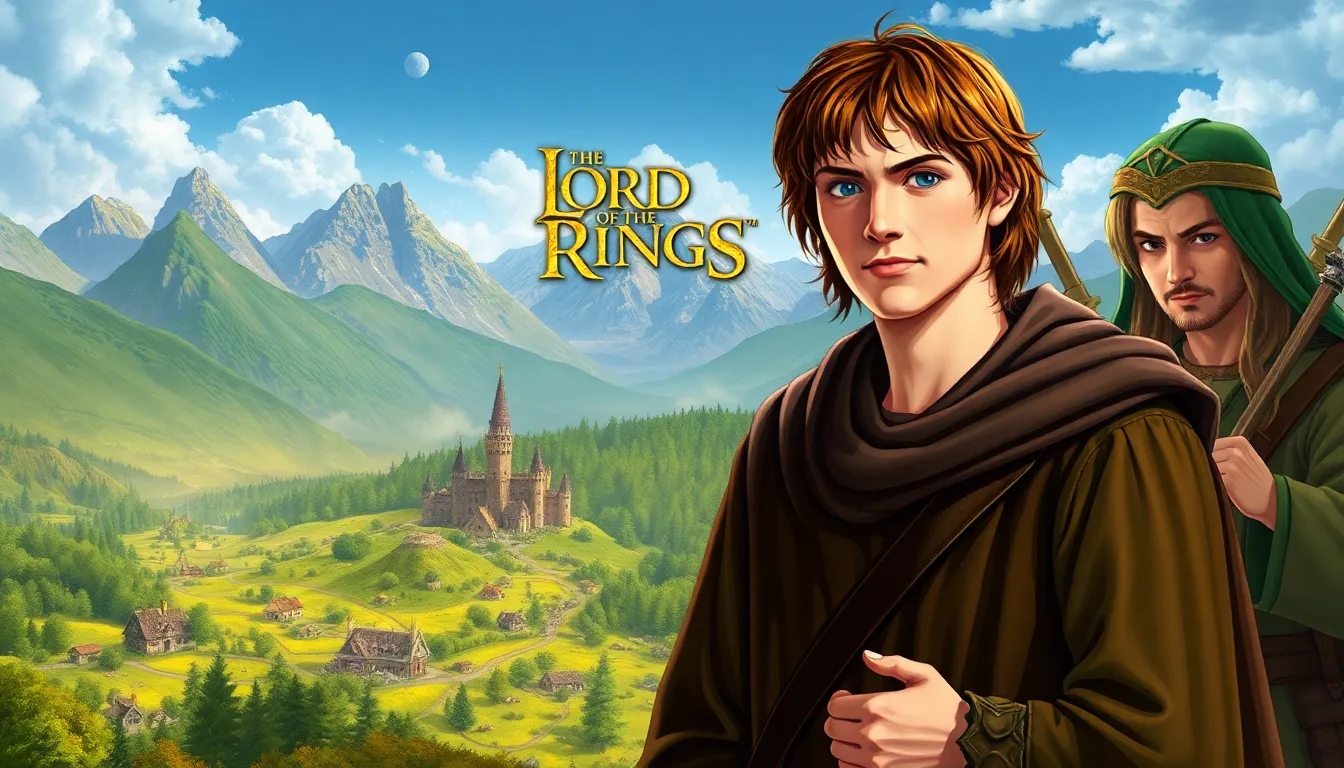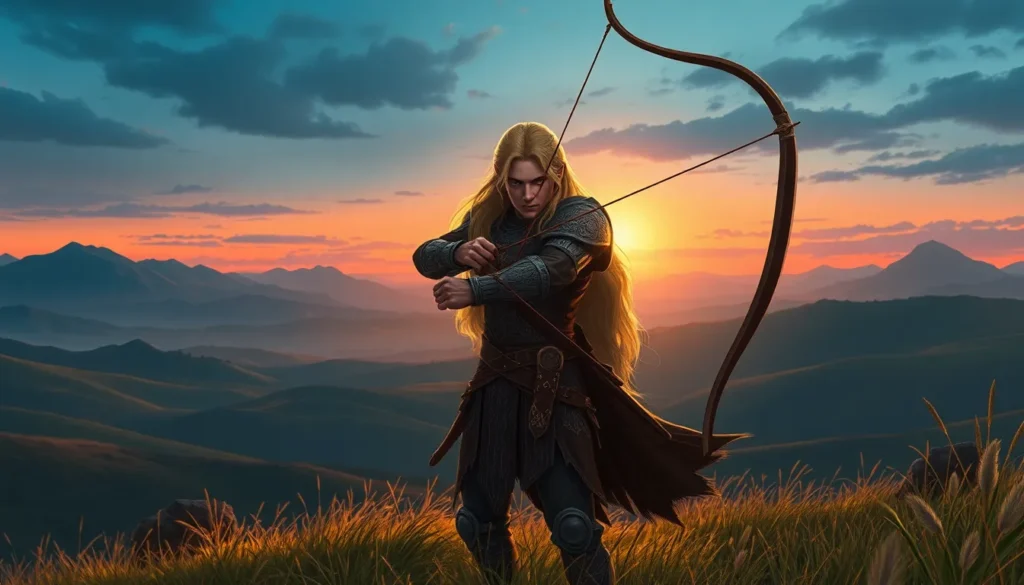In a world where hobbits munch on second breakfasts and elves strike poses more graceful than a ballet dancer, the realm of Middle-earth has inspired some truly epic video games. From epic quests that would make even Gandalf raise an eyebrow to battles that would have Sauron sweating bullets, LOTR video games offer an immersive experience that’s hard to resist.
LOTR Video Games
Numerous video games based on “The Lord of the Rings” have emerged over the years, captivating audiences with engaging gameplay. Titles span various genres, including action-adventure, role-playing, and strategy.
Popular franchises like “Middle-earth: Shadow of Mordor” and its sequel, “Shadow of War,” offer players an opportunity to explore the dark depths of Mordor while engaging in stealth and combat. Characters from the series, such as Talion and Celebrimbor, anchor the narrative, enhancing the connection to the original lore.
Combat mechanics in LOTR video games often embrace large-scale battles that echo the epic confrontations from the films. Players control iconic heroes like Aragorn and Legolas, showcasing unique abilities that resonate with their portrayals in the saga.
In addition to main titles, spin-offs and mobile games provide diverse experiences for fans. Adaptations like “LEGO The Lord of the Rings” combine humor with exploration, allowing players to relive iconic moments in a playful way.
Multiplayer options also enhance immersion. Games such as “The Lord of the Rings Online” allow players to connect, undertake quests together, and explore the vast landscapes of Middle-earth. This fosters a sense of community among fans.
Overall, LOTR video games celebrate the timeless themes of courage, friendship, and sacrifice found within the story, ensuring their continued popularity among gamers and enthusiasts. Engaging gameplay mechanics mirror the dynamic world created by J.R.R. Tolkien, maintaining its relevance across generations.
Key Titles in the LOTR Franchise

Numerous titles capture the essence of “The Lord of the Rings” franchise within the gaming world. Each game offers unique experiences, grounding players in J.R.R. Tolkien’s legendary narrative.
The Lord of the Rings: The Fellowship of the Ring
Released in 2002, “The Fellowship of the Ring” serves as an action-adventure staple. Players journey through iconic locations while guiding Frodo and his companions. Combat mechanics incorporate real-time action and puzzle-solving elements. Unique narrative-driven quests enhance engagement, promoting immersion in the story. Exploration of Middle-earth remains central to gameplay, with detailed environments that reflect Tolkien’s world. Voiceovers from the film cast deepen the connection between the game and its cinematic counterparts.
The Lord of the Rings: The Two Towers
Launched in 2002, “The Two Towers” combines cinematic action with diverse gameplay. Players control multiple characters, including Aragorn, Legolas, and Gimli, during large-scale battles. Combat combines sword fighting mechanics with combo attacks, emphasizing cooperative play. Levels reflect critical scenes from the film, with visually rich environments. Upgrades and skills unlock as players progress, adding depth to character development. Completing missions rewards players with collectibles, enriching the overall experience.
The Lord of the Rings: Return of the King
Released in 2003, “Return of the King” offers a cooperative multiplayer experience. Featuring a robust combat system, players engage in intense battles against Sauron’s forces. Each character possesses unique abilities, adding strategic layers to gameplay. Environments recreate pivotal moments from the film, enhancing immersion. Players earn experience points and can upgrade abilities, promoting continued engagement. The inclusion of iconic moments from the series ensures that fans feel connected to the overarching narrative.
Gameplay Mechanics and Features
Several gameplay mechanics and features define the immersive experience of LOTR video games. Popular titles engage players in combat, exploration, and character development.
Combat Systems
Combat systems in LOTR video games draw inspiration from epic cinematic battles. Players can control iconic characters such as Aragorn, Legolas, and Gandalf, utilizing unique abilities. Swordplay and magical attacks combine seamlessly, creating dynamic encounters. Team-based strategies enhance gameplay, particularly in titles featuring multiplayer modes. Over-the-top finishing moves often deliver cinematic flair, keeping players engaged. This immersive combat experience allows players to feel the weight of each battle, reminiscent of pivotal moments in the films.
Exploration Elements
Exploration elements encourage players to journey through detailed environments inspired by Middle-earth. Iconic locations, such as Rivendell and Moria, invite players to uncover secrets. Players often complete quests that enhance their connection to the lore. Open-world designs allow for vast exploration, showcasing landmarks and hidden treasures. Environmental storytelling further enriches the experience, with visual cues and collectibles scattered throughout the landscape. Engaging with these elements deepens immersion, enabling players to feel part of J.R.R. Tolkien’s legendary narrative.
Recent Developments in LOTR Gaming
Recent updates in LOTR gaming showcase exciting advancements and expansions within the franchise. Game developers continuously strive to improve player experience and engagement.
Middle-earth: Shadow of Mordor
Middle-earth: Shadow of Mordor, released in 2014, introduced the innovative Nemesis system, creating unique interactions with enemies. Players navigate Mordor’s vast landscapes while executing stealth strategies. Talion and Celebrimbor serve as the narrative’s main protagonists, highlighting themes of vengeance and betrayal. Dynamic weather changes and a day-night cycle immerse players in the environment. Overall, the game offers an engaging blend of exploration, combat, and storytelling that resonates with the lore of “The Lord of the Rings.”
Middle-earth: Shadow of War
Middle-earth: Shadow of War builds upon its predecessor’s foundation, enhancing the Nemesis system with deeper character development. Released in 2017, the game allows players to command various orc tribes, fostering loyalty through unique interactions. Players engage in large-scale battles, employing strategic tactics against Sauron’s forces. Stunning visuals and an expansive open world invite exploration and discovery. The game emphasizes player choice, impacting the narrative and offering varied gameplay experiences that reflect Tolkien’s rich mythology.
Future of LOTR Video Games
Anticipation surrounds the development of future “The Lord of the Rings” video games as the gaming landscape continues to evolve. Prominent studios are exploring new narratives, genres, and technologies to immerse players in Middle-earth. Both classic and new characters might grace upcoming titles, providing fresh perspectives on beloved stories.
Recent announcements hint at major projects that could redefine the franchise. For instance, a new MMORPG is set to expand on “The Lord of the Rings Online,” deepening the lore and community engagement. Additionally, single-player narratives promise to build on themes present in earlier titles while incorporating modern gameplay mechanics.
Next-gen graphics and artificial intelligence advancements will likely enhance player experiences. Developers are expected to leverage these technologies for more realistic combat systems and intricate environments. Players could find themselves even more deeply connected to the storyline, engaging in dynamic quests that respond to their actions.
Various platforms will also play a critical role in the expansion of LOTR games. Mobile gaming trends are likely to introduce spin-offs that reach wider audiences, while console and PC titles will focus on immersive storytelling. These multi-platform strategies ensure that the universe of Middle-earth remains accessible to fans across different gaming styles.
Expansion packs and downloadable content are anticipated to keep existing titles fresh. Regular updates may introduce new characters, quests, and regions to explore. Engaging the community through player feedback will also help shape the trajectory of future projects, ensuring alignment with fan expectations.
Overall, the future of LOTR video games represents a blend of nostalgia and innovation. Developers are primed to create experiences that honor Tolkien’s legacy while pushing the boundaries of what gaming can achieve.
Conclusion
The realm of “The Lord of the Rings” video games continues to captivate players with its rich narratives and immersive gameplay. Each title not only pays homage to Tolkien’s legendary world but also introduces innovative mechanics that enhance the gaming experience. As developers explore new technologies and storytelling methods the future looks bright for fans eager to embark on new adventures in Middle-earth. With a blend of nostalgia and modern gaming advancements players can look forward to even more engaging experiences that honor the spirit of this timeless saga.

